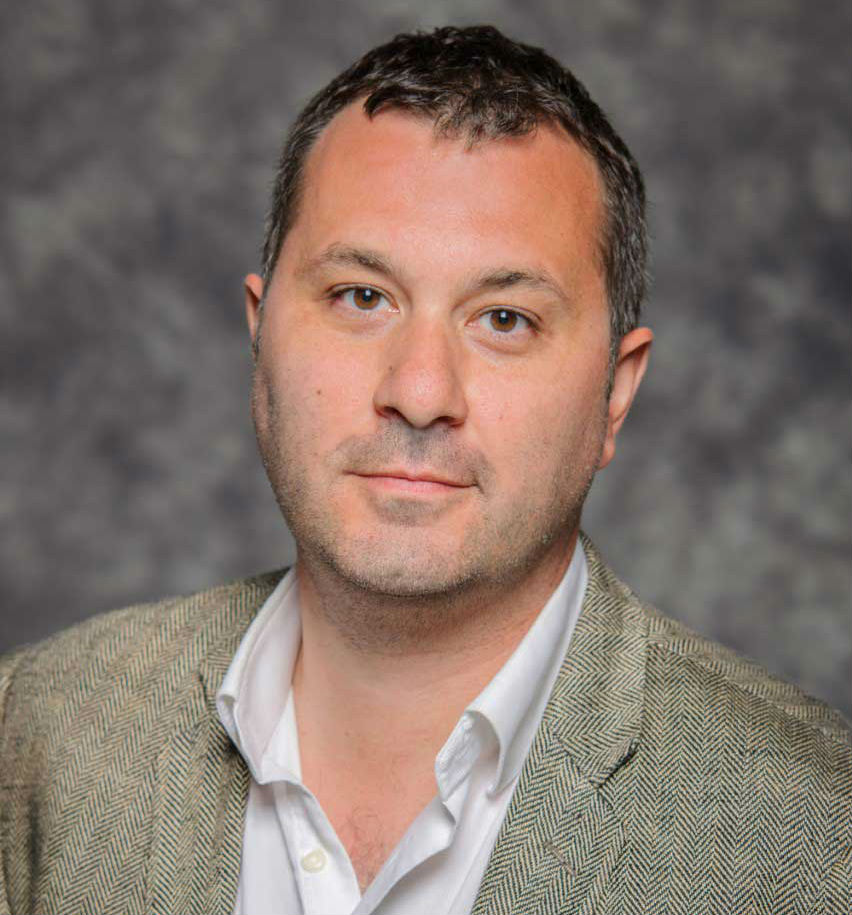Stephen Charman isn’t content with knowing how the human mind works – he wants to use that knowledge to further the interests of justice.
Charman is an associate professor of psychology. His primary research interests lie mainly in the area of eyewitness psychology, but he also covers legal psychological issues more broadly.

Charman’s entry into the legal psychology field is a testament to his practical turn of mind. He’s long been interested in the ways in which decision-making goes wrong, especially within applied contexts. Legal psychology, and eyewitness psychology in particular, which focuses on how psychology can inform the legal system to minimize eyewitness identification errors, was a perfect nexus for those two interests.
Because FIU has one of the only legal psychology programs in the country, becoming a Panther was a perfect fit. He currently maintains a legal psychology lab that involves numerous undergraduate and graduate students. He hopes that his work will help improve the accuracy of criminal trial verdicts, which, as recent DNA exoneration cases have shown, can be tragically mistaken.
“Once I learned about the sheer number of people who were wrongfully incarcerated for crimes they did not commit, it was impossible not to empathize with them,” he says.
“I can’t even imagine losing decades of my life over something I didn’t do – the utter frustration and helplessness these innocent people must feel. The empirically-supported recommendations that legal psychology researchers can make to the legal system are aimed largely at reducing the likelihood of these sorts of miscarriages of justice occurring in the future.”
For example, one of his current research projects involves the ability of innocent people to generate accurate alibis. Research has shown that people are bad at accurately remembering their whereabouts for a specific time in the past, so Charman is working on studies that look at different ways to improve this. For instance, people are more accurate when they are given a physical timeline on which to indicate their whereabouts over a period of time, instead of just reporting freely.
Additionally, people remember the existence of more exonerating evidence that can support their alibi if asked to report their whereabouts chronologically. Whereas most alibi studies have been largely limited to simply documenting that innocent people are bad at providing accurate alibis, Charman’s studies are some of the first to also provide recommendations to the legal system for how to improve their accuracy.
Charman doesn’t restrict his time to his lab. He is also a member of the FIU ADVANCE team, participating in the regular Bystander Leadership Program workshops offered to faculty. He wanted to broaden his perspective on the issues of diversity and equity.
“Equity issues are not only the purview of minorities. People like me – a White, straight, cis-gendered, able-bodied, middle-aged male – should also be concerned with them. Being a member of the ADVANCE team allowed me to put my money where my mouth was.”
As one of the earliest FIU ADVANCE team members, Charman helped develop the Bystander material. His graduate training is in social psychology, and one of the primary lessons in that field is that people’s behavior is largely a function of the situation in which they find themselves, and not necessarily, as is often assumed, a function of their personality. Charman wanted to be sure that participants appreciated this point.
“When people don’t intervene in a situation that might require it, we shouldn’t conclude that their inaction is a result of a lack of a desire to intervene – we need to see what situational variables were present that might have contributed to their inaction. Once we recognize that our own inaction can often be a function of all sorts of situational variables, we can start to work on overcoming those variables.”
Charman believes Bystander is valuable for its unique interactive quality. While other workshops may focus more on lectures, Bystander participants are required to get out of their seat and practice interventions with actors and with each other. “That sort of interactivity is not only fun and engaging, but also really important in changing behavior. It’s like practicing a skill – the more you practice, the better you get at it.”
One of the most important takeaways of Bystander is the idea that intervention can be practiced by anyone, in any situation. Bystander specifically does not tell people how they should intervene, but instead provides people with the tools to intervene in whatever manner works best for their specific circumstance.
“We sometimes think that intervention requires speaking up immediately, or directly confronting the person who made some sort of offending remark: things that are hard for many people to do due to their personality or the specific circumstances of a situation,” says Charman.
“But intervention can be much broader than that. It might take the form of steering a conversation in a different direction, or providing support to someone, or starting committees to address systemic departmental problems.”
